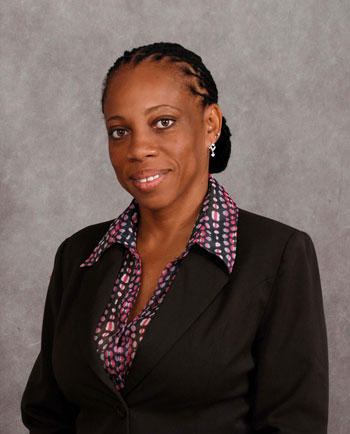 GREAT BAY:--- According to Dr. Rhoda Arrindell, grade school children spend upwards to eight hours actively "learning all sorts of interesting things, but when they come home, it is often as if they are expected to simply switch off their learning brain."
GREAT BAY:--- According to Dr. Rhoda Arrindell, grade school children spend upwards to eight hours actively "learning all sorts of interesting things, but when they come home, it is often as if they are expected to simply switch off their learning brain."
In some societies the old saying that questions the value of "too much studying ... must have come from the notion and a time when it was accepted that only a certain part of the day should be devoted to intellectual activity," said Dr. Arrindell. She was an invited speaker in Curacao at the recent educational conference, "Pedagogie: Opvoedingstoolbox."
"Today it is accepted that intellectual development is an ongoing process, and it is important for parents to support what takes place at school in the home," said the leading St. Martin linguist. Her audience consisted of educators, language scholars, government policy experts, and daycare and after-school activity providers.
"Language Development and Education in Children 0-12 Years" was the title of Dr. Arrindell's conference paper, presented on December 7. The StepAhead Foundation and the University of the Netherlands Antilles (UNA) hosted the educational/child development symposium at the Renaissance Hotel and at UNA.
In her paper, Dr. Arrindell drew on a number of scientific language development studies and on what she has called elsewhere the "linguistic versatility" of St. Martiners. She also encouraged the presentation of more scholarly papers in Papiamentu at educational conferences in Curacao.
Dr. Arrindell concluded her presentation on the relationship between how children develop language skills; the essential need for more knowledge and respect of Caribbean nation languages in the classroom; and why parents who are seen reading regularly by their children are setting an excellent example for their children's success in school and in the community at large.
"Regardless of the child's linguistic background, the everyday environment should be laden with oral and written language. The importance of children reading cannot be overemphasized here," said Dr. Arrindell.
"Studies in both first and second language acquisition have shown that students who read more generally outperform those who read less in a range of tests. Even when the reading activities were for pleasure, reading was found to help lessen 'writing apprehension' among students, and reading also helps children with their thinking skills," said Dr. Arrindell.
"Another interesting fact about child language acquisition is that the younger children are, the easier it seems for them to learn another language. According to Fromkin et al. in An Introduction to Language, 'Young children before the age of puberty who are exposed to more than one language seem to acquire all the languages equally well.' But this means that the child should be exposed to all the languages equally for him or her to acquire them equally. It cannot be so that exposure to one language is limited to the school environment and exposure to another is limited to the home or community environment, yet the child is expected to acquire both equally and be able to communicate in both equally," said Arrindell, who served as St. Maarten's first minister of education, culture, sports and youth affairs, from October 2010 to May 2012.
"The child language development matter is further compounded when in Caribbean societies, which are themselves still in the process of forging their own identities, the Creole or home language of the child is not treated equally as another (European) target language in the classroom, or even within the broader community," said Dr. Arrindell.
"Studies continue to show that when children come to school socialized in a language that is culture-specific, and they are expected to perform in another language, they experience a sort of cultural discontinuity, which often negatively affects academic performance," said Dr. Arrindell, who has also co-authored two chapters in the new book, Agency in the Emergence of Creole Languages (2012), edited by Dr. Nicholas Faraclas.
Among the speakers at the two-day conference in Curacao were Dr. Rene Diekstra from the Netherlands, and from Curacao Drs. Leonard Coffin, Drs. Irving Picus, Drs. Karin Hermans, Drs. Shanti Guanipa, and Drs. Stephen Ebecilio.